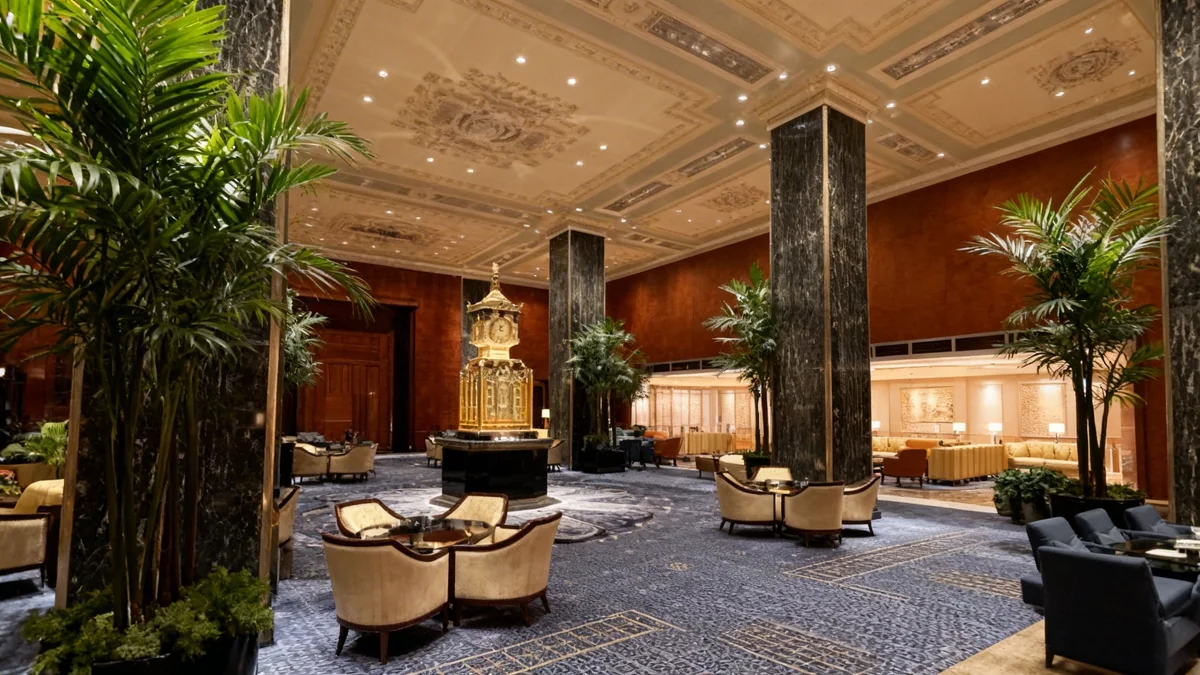Hotels are transforming their booking experience, moving beyond basic room sales to offer a wide array of personalized amenities. This shift, driven by new technology and artificial intelligence, allows guests to customize their stays with everything from early check-in to gourmet snack boxes, creating a booking process that increasingly resembles purchasing airline tickets.
Key Takeaways
- Hotels are using AI and technology to offer personalized amenities.
- Guests can now pre-book specific room features and luxury items.
- Boutique and large hotel chains are adopting these new strategies.
- The aim is to enhance guest experience and boost revenue.
- Hotels must ensure consistent service delivery for these new offerings.
The Rise of Personalized Hotel Stays
The traditional hotel booking model is evolving. Guests are no longer just selecting a room type; they can now tailor their entire experience before arrival. This trend allows properties to unbundle their services and offer them as individual, pre-payable add-ons.
For example, travelers might choose an earlier check-in time, a later check-out, or even a specific room with a garden view. These choices come with an added cost, integrated directly into the booking path.
Did You Know?
Only 14% of U.S. hotel guests are willing to pay extra for a room with a better view, and just 11% for a higher floor, according to recent surveys.
Boutique Hotels Lead the Way in Customization
Smaller, independent hotels are often at the forefront of this personalized approach. The 14-room Lakehouse Inn in Lee, Massachusetts, uses an AI-powered booking platform to match guests with unique rooms.
"Each of our rooms is unique, and previously guests could only book a room type... and then call us if they wanted a specific room," said co-owner Kurt Inderbitzin. "The new platform asks prospective guests their preferred room size, bedding, location, and view."
This system then presents detailed photos and descriptions of specific rooms that meet the guest's criteria, allowing them to choose and potentially pay more for a preferred option.
Expanding Amenity Options
Beyond room specifics, hotels are offering a range of in-room amenities for an extra fee. Guests can request items like bottled water, pool access, or even specialized snacks. Some properties are getting creative with their offerings to stand out.
At the 79-room Inn at the Market in Seattle, guests can prepay for a bouquet of fresh market flowers or a box of macaron cookies to be waiting in their room upon arrival. While only 5-10% of guests opt for these a la carte perks, they provide a positive additional income stream.
Industry Context
The hotel industry faces increasing competition from rental platforms like Airbnb and VRBO. Offering unique, personalized experiences through add-ons helps hotels differentiate themselves and maintain a competitive edge.
Major Chains Embrace New Technology
It is not just boutique hotels adopting these strategies. Larger hotel groups are also integrating new technologies to enhance customization. In 2024, over 5,000 Wyndham hotels implemented technology to text guests 24 hours before check-in with localized add-on offers.
- A Howard Johnson near Disneyland might offer early check-in.
- A Days Inn in Jekyll Island, Georgia, could suggest a basket of sunscreen and beach toys.
According to Scott Strickland, Wyndham's chief commercial officer, the most successful hotels are those offering add-ons that genuinely enhance the guest experience at a fair price.
The Balance Between Personalization and Perceived Value
While personalization offers benefits, hotels must find a balance. Guests appreciate control over their stay, but they may feel nickel-and-dimed if charged for amenities they once considered standard.
For instance, bottled water or pool access were often included, but are now sometimes offered as premium add-ons. This approach works best when the added value is clear and desirable to the guest.
Leadership brand strategist Anne Taylor Hartzell, 50, notes she is fine paying extra for a better view or for a bottle of bubbles chilled and waiting in her room. Conversely, Debbie Twombly, 74, a budget traveler, states she never spends extra on perks.
Operational Challenges and Future Outlook
The expanded offerings require hotels to ensure consistent service delivery. If a guest pre-orders a fruit and cheese plate or rose petals, the hotel must deliver on that promise with quality and attention to detail.
Henry Harteveldt, president of Atmosphere Research Group, emphasizes this point: "Letting guests reserve a fruit and cheese plate or rose petals on the bed upon arrival is great, but it means a hotel has to make sure the cheese doesn’t look like it’s from the castaway bin at Safeway and that there are always fresh rose petals on hand."
The question for hotel owners becomes: "Just because we can do this, should we?" This highlights the need for careful consideration and operational readiness to meet new guest expectations.





